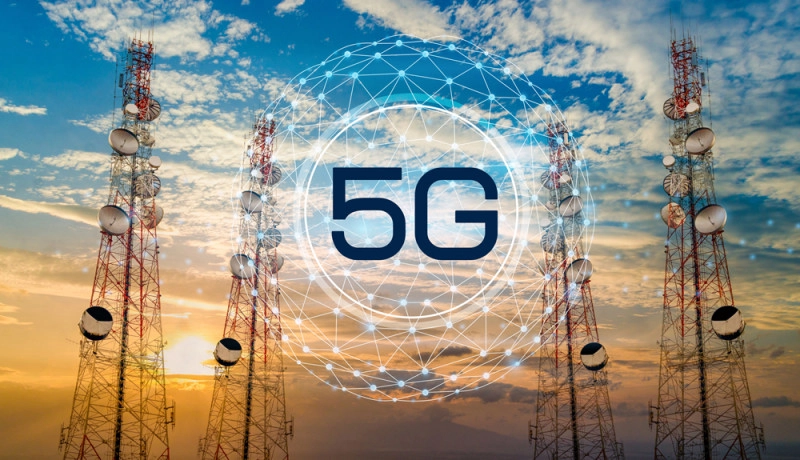Faster than light, the digital world is changing quickly, and 5G technology is one of the main reasons for this. If you have a smartphone, you may have seen the small “5G” mark on the screen and been curious about what it means. 5G is a lot stronger than most people think. They just think of it as faster internet. It’s meant to change businesses, towns, and even our daily lives, as well as make browsing, streaming, and talking better. It is important to understand 5G because this new wave of networks will have an effect on everyone, from people who just use the internet occasionally to businesses around the world.
What is 5G?
There are five generations of radio networks, and 5G is the fifth one. It comes right after 4G, which most of us have been using for years. Each age before this one brought big changes. For instance, 2G made text messages possible, 3G made mobile internet possible, and 4G made it possible to browse the web quickly and watch videos. Five-G is different because it has faster speeds, very low delay, and the ability to join more devices at once.
In simple terms, 5G makes the internet faster, more quick, and more dependable. Through this network, things that used to take minutes, like getting a big movie, can now be done in a flash. But its real power is in making advanced technologies possible, like self-driving cars, healthcare, and smart towns, which need to be able to communicate instantly and stay connected.
Why 5G is Not the Same as 4G
A lot of people think that 5G is just 4G with faster speeds at first, but there are actually a lot more changes. The main goal of 4G was to make smartphones better, but the main goal of 5G is to support the growing digital world around us. On good days, it gives you internet speeds that are up to 100 times faster than 4G. Latency is the most important change, even more so than speed. Latency is the time it takes to get an answer after sending an order. This delay can be thirty to fifty milliseconds with 4G, which feels like nothing at all but can still be felt in games or robots. With 5G, delay drops to as little as one millisecond, which lets people talk to each other in real time.
There is also a change in size. If there are a lot of people using 4G at the same time, it can slow down. This happens a lot in places like events and sports grounds. But 5G can handle a lot more links in a small space without slowing down or lowering the quality of the connections. This makes it possible for millions of gadgets, from smartphones to sensors and smart watches, to work well with each other.
How 5G will make life better in general
For most people, better internet speeds will be the most noticeable change. It will feel easy to stream movies in ultra-high definition, download apps right away, and enjoy video calls that are very clear. But 5G has effects that go far beyond making life easier for individuals.
5G will cut down on lag and make cloud gaming easier for players. Games can be streamed directly from computers to a smartphone without any pauses, so you don’t need to buy expensive systems or PCs. With better video chatting and real-time teamwork, it will be easier for students and workers to learn online and work from home. It will be easier to do simple things like shopping online or reading social media because pages will load faster and live material will stream without any breaks.
What 5G Does for Smart Cities and Homes
The way that 5G supports the Internet of Things is one of the coolest things about it. All of these are normal electronics that are linked to the web and can talk to each other. When there is a stable 5G network in a smart home, things like security cameras, heaters, freezers, and voice helpers can work together better. Imagine getting reports from your home security system right away or being able to control your machines from afar without having to wait.
5G will be very important for building smart towns on a bigger scale. Smarter management is possible for traffic signs, public transit, and energy grids all when they are linked together. This could mean less traffic jams, better use of energy, and faster methods for responding to emergencies. This means that life in cities will be safer, cleaner, and more efficient for the people who live there.
What 5G will mean for healthcare
5G could really save lives in the healthcare field. Because it has very little delay, doctors can use robotic devices to do surgeries from afar while being led in real time. Patients who live in country or remote places will not have to drive a long way to get improved medical care. Wearable health devices, like glucose trackers or heart monitors, will be able to send doctors real-time reports. This will make it easier and more accurate to find health problems early on.
Telemedicine will also be very helpful. Even in places with bad network service, video chats with doctors and nurses will work better and feel more trusted. This makes health care easier to get, cheaper, and more effective.
What 5G means for businesses and new ideas
5G will open up new possibilities for businesses in all kinds of fields. To cut down on downtime, factories can use advanced technology and watch over their equipment in real time. With fast links, augmented and virtual reality can give customers more realistic shopping experiences. Logistics companies can keep track of packages very accurately and work more efficiently.
5G will make websites faster, customer service better, and the ability to use tools that needed fast, stable internet connections before possible for small businesses. There will be chances for entrepreneurs to make new services that weren’t possible with older networks. This wave of new ideas could start whole new businesses and make millions of jobs available around the world.
Things that could go wrong with 5G
The good things about 5G are exciting, but there are also some problems to think about. Rolling out 5G facilities will cost a lot of money, so access may be limited at first to big towns and other urban places. It might take longer for people in rural places to get all the rewards.
Health and safety are also being talked about all the time. A lot of research has shown that 5G is safe, but false information keeps getting around. In terms of security, the rise in connected gadgets makes it easier for hackers to get in. This means that better security steps will be needed.
Questions People Ask About 5G Will 5G take the place of Wi-Fi?
No, 5G won’t take the place of Wi-Fi. Instead, it will make it better. Wi-Fi will still be used a lot in homes and businesses, but 5G will let you connect to the internet quickly from anywhere.
Can every phone connect to 5G?
Some phones aren’t ready for 5G. You need something with a connection that works with 5G. Most smartphones that came out in the last few years can connect to 5G networks, but some older models can’t.
Can I get 5G everywhere?
5G is getting better, but it’s still not available everywhere. Rollouts happen faster in big towns and developed areas, but people in rural places may have to wait longer.
Does 5G make phones use more battery?
Because it needs more power, 5G can drain batteries faster than 4G. To make up for this, though, makers are making newer gadgets more efficient.
Is 5G good for your health?
Yes, 5G is safe, according to the World Health Organization and other health groups. The amounts of radiation used are safe according to world standards.
In conclusion
5G networks do more than just let you download things faster on your phone. The way we meet, talk, and experience the world around us has completely changed because of them. 5G will change almost every part of life. It will power smart homes and cities and change the way healthcare and business are done. There are still problems, like rolling out infrastructure and keeping data safe, but the chances are much greater than the worries. As 5G keeps growing, it will make it possible for new ideas that we can’t even think of yet. It is no longer a choice for people, companies, and groups to use this technology; it is the next step in our digital journey.

